
From shifting tornado patterns to more frequent winter storms in unexpected regions, the impact on electrical reliability is undeniable. But the solution to these challenges goes beyond a simple investment in backup generation to ensure continuity for businesses and critical infrastructure. To truly achieve resiliency, one needs to understand how various solutions perform before, during and after backup power is needed. In other words, businesses must ask, are the results from any investment actually meeting expectations for eliminating the impact from power outages?
Weather patterns across the globe are undergoing significant transformations, and they are reshaping the landscape of electrical resiliency. The National Oceanic and Atmospheric Administration (NOAA) has observed a notable shift in tornado activity, with tornado alley gradually expanding further eastward. Additionally, regions traditionally spared from harsh winters—from California and Texas to the Northeast—have been experiencing more frequent and severe storms year-round, exacerbating the strain on the grid infrastructure.
One of the consequences of these changing weather patterns is an escalation in power outages for critical infrastructure that can disrupt business operations, incur significant financial losses, and even endanger lives. For example, large load facilities like data centers may be structurally resilient to storms, but they can face operational challenges that compromise their functionality and data integrity when the grid fails to deliver the power they require. As a result, backup power has become essential. And with a growing recognition of the need for enhanced resiliency strategies, microgrid backup power systems are emerging as a key solution.
この記事は ENERGIES の Summer 2024 版に掲載されています。
7 日間の Magzter GOLD 無料トライアルを開始して、何千もの厳選されたプレミアム ストーリー、9,000 以上の雑誌や新聞にアクセスしてください。
すでに購読者です ? サインイン
この記事は ENERGIES の Summer 2024 版に掲載されています。
7 日間の Magzter GOLD 無料トライアルを開始して、何千もの厳選されたプレミアム ストーリー、9,000 以上の雑誌や新聞にアクセスしてください。
すでに購読者です? サインイン
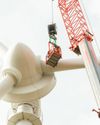
MAKING WIND ENERGY EVEN MORE SUSTAINABLE
With Voodin Blade Technology’s laminated veneer lumber blades, wind turbines can produce up to 78 percent fewer CO2 emissions, and production costs can decrease by up to 20 percent compared to current solutions.

INTRODUCTION TO CHAPTER 2: ASSESS THE OPPORTUNITY
I had a sales meeting with an executive for a company headquartered in London, England. We met in the lobby, and he ushered me into his office.
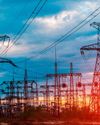
SURVIVING THE SURGE: STRATEGIES FOR MANAGING ELECTRICITY IN THE FACE OF GRID INSTABILITY
Historically, business leaders have not had to prioritize electricity when auditing or improving their supply chain management.

LOWERING CARBON EMISSIONS, SAVING MONEY, IMPROVING LIVES AND NATURE
Public and private enterprises are increasingly designing an energy transition strategy for their business given economic opportunities, legal and regulatory requirements, environmental, health and safety benefits, new technologies, and increasing stakeholder demand.

CEO Santosh Nanda STAKES GROUND IN THE ENERGY TRANSITION LAND RUSH
As the world progresses, software solutions have infiltrated all sectors and industries.
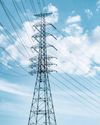
THE IMPACT OF GREEN HYDROGEN ON GRID STABILITY
Green hydrogen is one of the most eco-friendly forms of renewable energy creation.

RE+ 24
After the success of RE+ 23 last year boasting over 40,000 attendees and 1,300+ exhibitors, RE+ 24 is set to make history as it celebrates its 20th year at the Anaheim Convention Center & Campus in Anaheim, California.
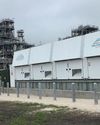
WEATHERING THE STORM: LEVERAGING DATADRIVEN RESILIENCY SOLUTIONS TO PROTECT CRITICAL INFRASTRUCTURE
As climate change intensifies, the vulnerability of our electrical grid to extreme weather events is becoming increasingly evident.
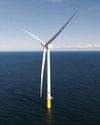
FLIPPING THE SWITCH: VINEYARD WIND 1 PHASE 1
As federal approvals continue to open opportunities for commercial offshore wind projects, the earliest approved projects are now coming online. In early 2024, Vineyard Wind 1, located just 14 miles off the coast of Martha’s Vineyard, began sending electricity to the grid.
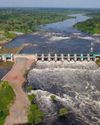
UGANDA'S RENEWABLE ENERGY AMBITIONS
In an attempt to convey its beauty, abundant wildlife, and natural wealth of the land, Winston Churchill, an early explorer of Uganda, called it the “Pearl of Africa” in his 1908 book, My African Journey.